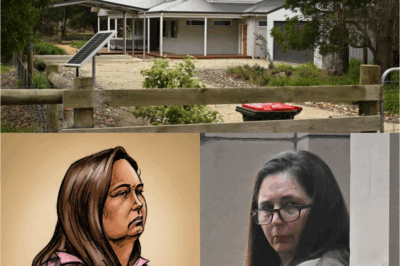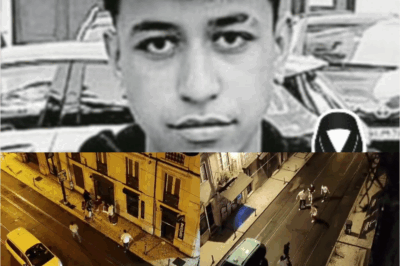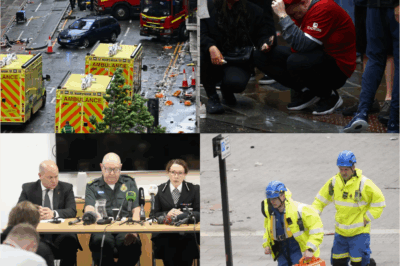CNN Host Claims Media is “Over-Censoring” Because He Wants “To Tell More Truth”

In the modern era of news and information dissemination, the responsibility of media outlets in accurately reporting on conflicts has never been more crucial
Jake Tapper, a prominent CNN host, recently shared his perspective on the Israel-Hamas conflict, emphasizing the challenges that come with balancing responsible journalism and the necessity to portray the stark realities of war.
This article delves into Tapper’s views, addressing the dilemmas faced by the media when covering such turbulent events, and examines his argument for why less censorship could foster a greater understanding of these complex issues.
The Complexity of War Reporting

Reporting on conflicts like the Israel-Hamas war is fraught with challenges. Tapper pointed out that one of the biggest issues is the problematic nature of gathering accurate information in a war zone.
The situation is often chaotic, leading to initial reports that may contain inaccuracies or misinformation, compounded by the potential biases of limited sources. These factors contribute to a murky media landscape where the line between truth and propaganda can become blurred.
Tapper highlighted that media outlets often err on the side of caution, particularly when it comes to displaying graphic images and footage related to violence.
While acknowledging the ethical implications of such content, he believes that showing the harsher realities of conflict could improve public understanding.
As the media grapples with the need to provide sensitive coverage while keeping the audience informed, Tapper’s advocacy for less filtering stands as a polarizing stance within journalism.
Understanding the Graphic Realities of War

During his commentary, Tapper underscored that the public has a right to know what is occurring in conflict zones. He made reference to the tragic events of October 7, which marked a significant escalation in the ongoing violence, urging viewers to grasp the full scope of what these attacks entail.
In doing so, Tapper argued that showing graphic images is not merely a matter of sensationalism; rather, it is an opportunity to foster a deeper connection to the tragedies that unfold.
This perspective is particularly important in the context of the current Israel-Hamas situation, where displaced individuals and casualties often go unreported or poorly represented.
By engaging with the stark visuals of conflict, Tapper contends that the dynamics and human costs of war become more comprehensible, fostering a more informed citizenry.
Nonetheless, critics may respond with concerns regarding the desensitization of audiences and the moral implications of exposing graphic content.
Challenges of Representation and Responsibility

In his discussions, Tapper addressed some of the criticism directed at mainstream media for allegedly underreporting aspects of life in Gaza.
He recognized that covering war is not only a matter of ethical dilemma but also a dangerous endeavor for journalists who risk their lives to provide coverage.
The challenges become magnified in regions where both sides of a conflict are facing immense suffering, as he highlighted the rising tide of antisemitism, which, while troubling, pales in comparison to the individual stories of pain from people in both Israel and Gaza.
Furthermore, Tapper noted a worrying trend of denialism in responses to the violence perpetrated during the conflict. He called attention to the experiences of victims, specifically those afflicted by sexual violence, and challenged global feminist organizations for what he sees as their lack of acknowledgment regarding these nuanced victims.
The complexity of these narratives raises significant questions about media responsibility and the accuracy of representations in wartime reporting.
By invoking historical references, including quotes from icons like General Dwight D. Eisenhower, Tapper emphasizes the importance of providing the public with unfiltered realities of conflict.
Eisenhower famously insisted that it was necessary for citizens to see the truth—an argument Tapper believes is just as pertinent today, highlighting the ongoing ethical discourse surrounding how media must navigate these sensitive topics while upholding their duty to inform.
Conclusion

In summary, Jake Tapper’s insights into media censorship during wartime reporting underscore a vital conversation about ethical responsibilities in journalism. As the public seeks to comprehend the realities of ongoing conflicts, the role of media in presenting unfiltered truths becomes paramount.
It prompts us to reflect on how we consume news and the impact of graphic representations on our understanding. To support influential discussions like this, engage with your local news outlets and encourage a dialogue that prioritizes transparency and truth in reporting.
News
“BANKRUPT BRITAIN?!” – Labour’s Plan to WATER DOWN Its Already Flimsy Welfare Reforms Could HURL the UK Into TOTAL FINANCIAL MELTDOWN
LABOUR is making a complete mess of welfare. Panicked and driven Left-wards by Reform’s surge, the Government is wobbling on the…
“TURKISH HOTEL TERROR!” – Brit Dad Brutally BEATEN TWICE in Front of His Kids… Family Holiday Spirals into a Living Nightmare
The alleged attackers reportedly had a feared reputation A DAD-OF-TWO said he was attacked twice in front of his kids…
“FED to PIRANHAS!” – 31-Year-Old Mum of 3 Vanishes After Ex’s Savage Revenge… Body Still Missing in Brazil
A MAN was caught on CCTV putting his former wife’s body in the boot of a car before coldly dumping…
“Dinner Party of DEATH!” – You Won’t Believe Erin Patterson’s Gross Confession After Her ‘Killer’ Mushroom Meal Claimed 3 Lives
MUSHROOM cook Erin Patterson who is accused of killing three people with a poisoned beef wellington graphically described how she…
HOLIDAY BLOODBATH! Teen SLASHED to Death with Broken Bottle in Lisbon—UK Tourist (27) DRAGGED Back to Portugal in Dramatic Midnight Extradition
Daniel was reportedly attacked while trying to defend a friend A BRITISH tourist has been arrested and extradited to Portugal…
LIVERPOOL PARADE CARNAGE! 53-Year-Old Driver PLOUGHS into Crowd—47 Injured, 4 Kids Hurt—Police Shout “NOT TERROR!” Fans in SHOCK
Emergency crews arrived to find people lying injured in the road and some trapped under the car FOUR children were…
End of content
No more pages to load












